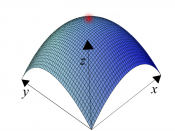Position Paper ? The Importance for Teachers of Understanding how Children's Mathematical Thinking Develops
"Why is innumeracy so widespread even among, otherwise educated people? The reasons, to be a little simplistic, are poor education, psychological blocks, and romantic misconceptions about the nature of mathematics." John Allen Paulos 1988
The body of knowledge of how children think mathematically has increased dramatically in the last thirty years. This has caused many changes in the way mathematics is presented to students. Until the 1960's, primary school arithmetic programmes in New Zealand focused on speed and accuracy in the four operations and their application. During the 1960's with the dawning of the space race, there was a belief that more mathematicians and scientists would be needed. This initiated many changes in the arithmetic/mathematics curriculum. The language of sets was included in the mathematics curriculum with less emphasis on skill and more on structure. Structured concrete materials were developed and the cuisenaire rods were introduced to primary classrooms.
Furthermore algebra, geometry and statistics were given more emphasis with number and measurement.
After this space race focus, researchers world wide have in the last twenty years taught us a lot about children's understanding of numeracy and how they come to develop these ideas. Young-Loveridge (1989) drew attention to the fact that many of the understandings children had on entering school in New Zealand were not well matched to the curriculum and what they were taught. Baroody et al (1990) mentions the work of ten different researchers or research groups who assisted the understanding of children's mathematical thinking in the last twenty years. Young-Loveridge (1999) acknowledged that teachers in Australia and United States that were given a framework, were better able facilitate their student's learning. She valued the work of Fuson and Renick in the United States...



Mathematics in New Zealand
I thought this was going to be so Piagetian, regarding cognitive development in mathematics for children. I'm surprised that only 18% all over the world have a high self-concept for maths, and also that many of the tests don't seem to teach higher-level skills.
It's a very good and concise essay on mathematics developments, especially in the area of teaching, all over the world. I was not familiar with many of the studies, but I am sure most if not all are widely accessible for those interested. They are relatively current and up-to-date and they sound authoriatitive.
3 out of 3 people found this comment useful.